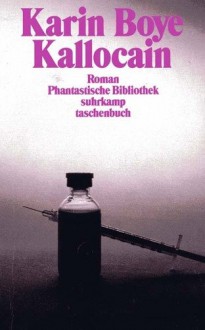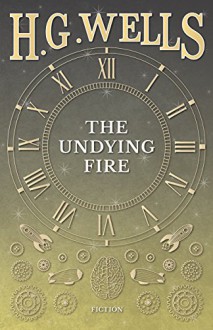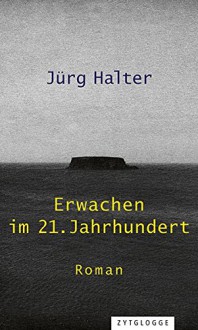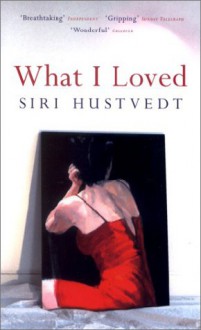
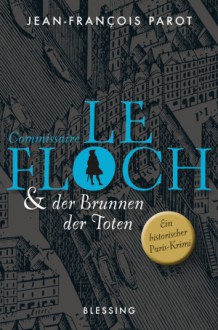
Jean-François Parot war ein weitgereister Mann. 1946 in Paris geboren, schloss er sein Studium als anerkannter Experte des 18. Jahrhunderts ab, absolvierte seinen Militärdienst und wurde dann Diplomat. Die Liste der Stationen seiner Karriere ist lang; als er 1999 begann, die historische Krimi-Reihe „Nicolas Le Floch“ zu schreiben, arbeitete er im bulgarischen Sofia. An den Wochenenden hatte er viel Freizeit, also setzte er sich eines Tages hin, zückte seinen neuen Stift, ein Weihnachtsgeschenk seiner Mutter und seines Sohnes, und dachte sich das erste Abenteuer seines Ermittlers aus. Seitdem sind über 20 Jahre vergangen und 13 Bände erschienen, die Blessing ins Deutsche übersetzt. Den zweiten Band „Commissaire Le Floch und der Brunnen der Toten“ erhielt ich vom Bloggerportal als Rezensionsexemplar.
Am Abend des 27. Oktober 1761 wird der Sohn des Grafen de Ruissec tot im Stadtpalais der Familie aufgefunden. Das Bild, das sich Commissaire Nicolas Le Floch am Tatort bietet, wirkt eindeutig: das Zimmer des jungen Vicomtes war von innen verschlossen, unweit seiner Leiche liegt eine Kavalleriepistole und auf dem Schreibtisch entdeckt Nicolas einen Abschiedsbrief. Alles deutet auf Selbstmord hin. Doch einige Details wecken Nicolas‘ Misstrauen. Als sich die Gräfin de Ruissec heimlich an ihn wendet und um ein geheimes Treffen bittet, ahnt der Commissaire, dass sie mehr über die Umstände des Todes ihres Sohnes wissen könnte. Unglücklicherweise erleidet sie einen schrecklichen Unfall, bevor das Treffen stattfinden kann. Nicolas ist alarmiert. Er glaubt nicht an einen Zufall und fürchtet, dass die Gräfin zum Schweigen gebracht werden sollte. Unerschrocken nimmt er die Ermittlungen auf, die ihn bis an den Hof von Versailles führen…
Mit einem Fakt muss ich mich im weiteren Verlauf der Reihe „Nicolas Le Floch“ wohl abfinden: ohne die Führung des Protagonisten bin ich hoffnungslos verloren. Der Kriminalfall, den „Der Brunnen der Toten“ schildert, ist höllisch verzwickt und kompliziert. Ich hatte keine Chance, ihn selbst zu lösen oder auch nur ansatzweise korrekte Vermutungen über die Hintergründe aufzustellen. Ich behaupte, das ist nicht möglich, verfügt man nicht über denselben Wissensschatz wie der Autor Jean-François Parot. Parot war Historiker und Anthropologe, sein Fachgebiet war das Paris des 18. Jahrhunderts. Nur diese spezielle Expertise befähigte ihn, einen Kriminalfall für Kommissar Le Floch zu konstruieren, der die heiklen, unübersichtlichen Dynamiken am französischen Hof unter Louis XV. einbezieht. Es ist vorstellbar, dass sich im Umfeld des Königs zahlreiche Verschwörungen und unerwartete Allianzen formierten, aber ohne Nicolas, der den Leser_innen stets weit voraus ist und geheimniskrämerisch viele Verdächtigungen und Schlussfolgerungen für sich behält, hätte ich die Schuldigen niemals enttarnen können. Selbst mit seiner Hilfe und der Auflösung am Ende von „Der Brunnen der Toten“, die ich tatsächlich mehrfach lesen musste, um sie zu verstehen, war ich völlig aufgeschmissen. Ich frage mich nun, ob diese bewusst lancierte Unkalkulierbarkeit des Falles ein Grund zur Kritik ist. Hätte Parot die Ermittlungen seines Protagonisten nicht verdaulicher gestalten können und müssen? Aus der Perspektive eines normalen Krimis lautet die Antwort Ja. Nun handelt es sich bei den Bänden der Reihe jedoch nicht um normale Krimis. Es handelt sich um historische Krimis. Parot schildert nicht nur eine Mordermittlung, er proträtiert auch das 18. Jahrhundert. Ich bin überzeugt, seine Geschichten zielen primär darauf ab, seinen Leser_innen etwas beizubringen, sein Wissen über und seine Faszination mit dieser Epoche zu teilen. Das gelang ihm hervorragend. Deshalb gefiel mir „Der Brunnen der Toten“ sogar besser als „Das Geheimnis der Weißmäntel“, obwohl ich lernen musste, meine andauernde Ahnungslosigkeit zu akzeptieren. Ich kam viel tiefer in die Geschichte hinein, war sehr schnell durch und genoss die Lektüre, vielleicht gerade weil ich mich in Nicolas‘ fähige Hände begeben musste. Auch hatte ich weniger Schwierigkeiten mit seiner latenten Profillosigkeit, weil ich mittlerweile vermute, dass diese seiner Rolle als Kommissar geschuldet ist. Er transportiert den Fall, nicht mehr und nicht weniger, sein Privatleben ist weitgehend irrelevant. Daher benötigt er keine minutiös ausgearbeitete Charakterisierung; seine Funktion besteht darin, eine Ermittlung zu organisieren, die wiederum die gesellschaftlichen Umstände der Zeit wiederspiegelt. Für den zweiten Band griff Parot die bereits im Volk schwärende Unzufriedenheit mit dem starren Ständesystem auf, was ich äußerst interessant fand. Er zeigt zahllose Kleinigkeiten, deren Summe 28 Jahre später zur Französischen Revolution führt. Soweit ich weiß, wird Nicolas die Unruhen der Revolution auch miterleben – eine spannende Zukunftsperspektive für die Reihe und ein Grund mehr, sie weiterhin zu begleiten.
Es überrascht mich immer noch, wie gut mir Jean-François Parots historische Krimis gefallen. Seine Beschreibungen der Pariser Gegenwart im 18. Jahrhundert sind vorzüglich; kleine, authentische und häufig kulinarische Details hauchen seinen fiktiven, fesselnden Kriminalfällen rund um reelle Persönlichkeiten Leben ein und lassen eine aufregende Epoche des politisch-gesellschaftlichen Umbruchs in Europa auferstehen. Seine Leidenschaft für sein Fachgebiet ist spürbar, denn er erging sich nicht in drögen akademischen Betrachtungen, sondern nutzte seine Begeisterung, um sein Wissen ganz nah zu seinen Leser_innen zu bringen. Diese Kombination knackt sogar meine Schale aus Skepsis hinsichtlich zwei Genres, die es normalerweise schwer haben, mich abzuholen. „Der Brunnen der Toten“ war eine mitreißende Lektüre und ich freue mich auf weitere Abenteuer mit Nicolas Le Floch – trotz der Erkenntnis, dass ich ohne ihn keinen einzigen Fall lösen könnte.
Vielen Dank an den Verlag Blessing und das Bloggerportal von Random House für die Bereitstellung dieses Rezensionsexemplars im Austausch für eine ehrliche Rezension!

 Log in with Facebook
Log in with Facebook 
